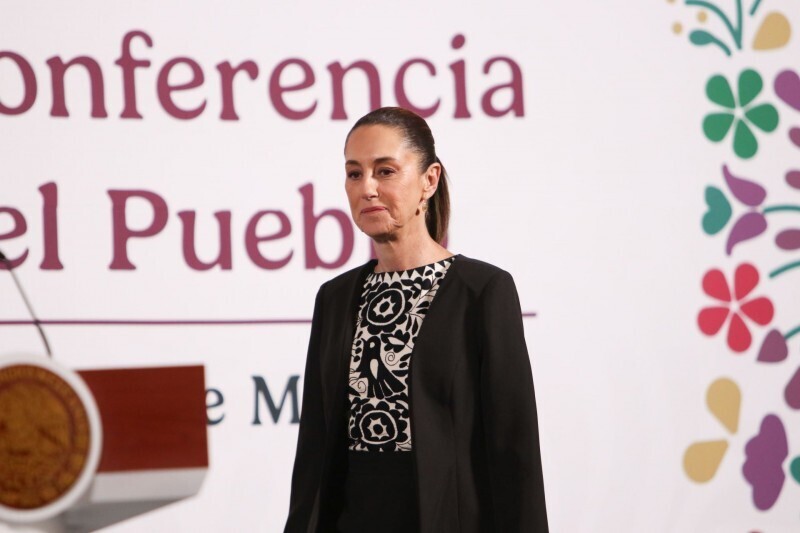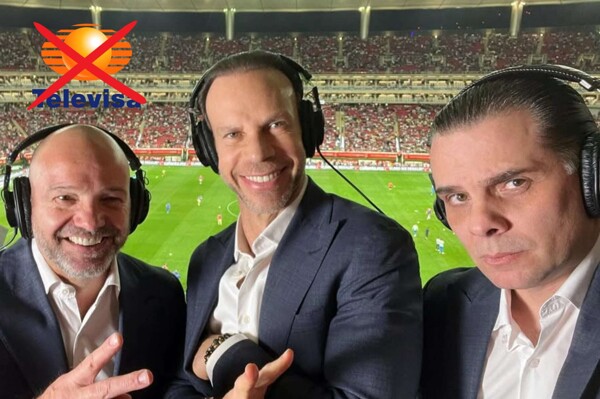
The Latin American organization was recovered by the 4T after several years of paralysis and was occasionally used to confront the United States under the umbrella of Latin American unity. After two terms, Mexico transferred command to Alberto Fernandez of Argentina, who operated under Mexican tutelage until Lula came to power in 2023. With the Brazilian leader, the priority returned to Mercosur, and the attempt to revive Unasur and Celac was left under the leadership of Saint Vincent and the Grenadines in 2023 and Honduras in 2024, with much less volume.
It is true that Andrés Manuel López Obrador has a closer view of the region than his predecessors, and Morena builds links with progressive Latin American parties, but we are talking about a tactical use to show a distinct game outside of bilateral tensions.
LPO exclusively reported that Sheinbaum "is thinking about the legacy she will leave after succeeding a man who rebuilt the country" and "wants to build her own transformation that would focus on local terms regarding infrastructure and energy but, above all, be remembered as someone who called for and worked with regional progressivism."
Moreover, at the Palace, they argue that the difficulties the government will face with Trump do not relate so much to local issues as regional ones like migration or drug trafficking, and for this reason, it will need to have a well-articulated region. The great ally for this task will be Honduran Xiomara Castro, who presides over the organization, but especially Gustavo Petro, who distanced himself from Lula and seeks to build an alternative power center with Sheinbaum.
Secretary of State Marco Rubio has already notified the Mexican government that next week he expects to accurately identify which Mexican organizations will be considered enemies of the U.S. state. As we see, the Republican leader has pointed all cannons at Mexico as a prelude to his aggressive and expansionist foreign policy. This is why Petro traveled to Haiti, and the President seeks to coordinate with Panama, Guatemala, Honduras, and Nicaragua. The upcoming Celac foreign ministers' summit will focus on the main issues of security and migration by the end of the month and will be the precursor to the meeting of presidents in Colombia.
In response, Claudia seems to manage a tactic based on two fundamental aspects: tranquility and dialogue to address the relationship between governments and lean on Latin America as a way to gain strength and design some form of defense against constant attacks.
Trump militarizes the border and pushes Sheinbaum towards a high-impact arrest to evade tariffs. In this regard, the government is again working to strengthen Celac. The Latin American organization was recovered by the 4T after several years of paralysis and was occasionally used to confront the United States under the umbrella of Latin American unity.
Donald Trump's charged return to the White House poses a huge challenge for the 4T. The Colombian also explores a dialogue path with Washington from a stronger position. This domain will be Celac. Claudia seeks to be the link between Trump and Central America to enhance her regional leadership. Claudia and Petro agree that the space for political accumulation should be Central America because it will be the center of gravity for U.S. migration policy. Sheinbaum faces a delicate scenario with the announcement of mass deportations and the risk of implementing tariffs on Mexican products that could severely damage the country's economy. As LPO anticipated, Trump intends to place 15,000 soldiers at the Mexico border, in a fundamental move to achieve the deportation goals his administration aims for: the corollary of the executive orders is that every person arrested attempting to enter the United States should be captured and deported to Mexico on the spot, without any judicial process or intervention. The militarization of the border also sets the stage for an intervention beyond those limits, related to the designation of cartels as terrorist organizations. At that moment, in 2020, AMLO decided that Marcelo Ebrard would take charge of presiding over the organization and articulating a strategy for the management of Covid vaccines. The government is again working to strengthen Celac.














